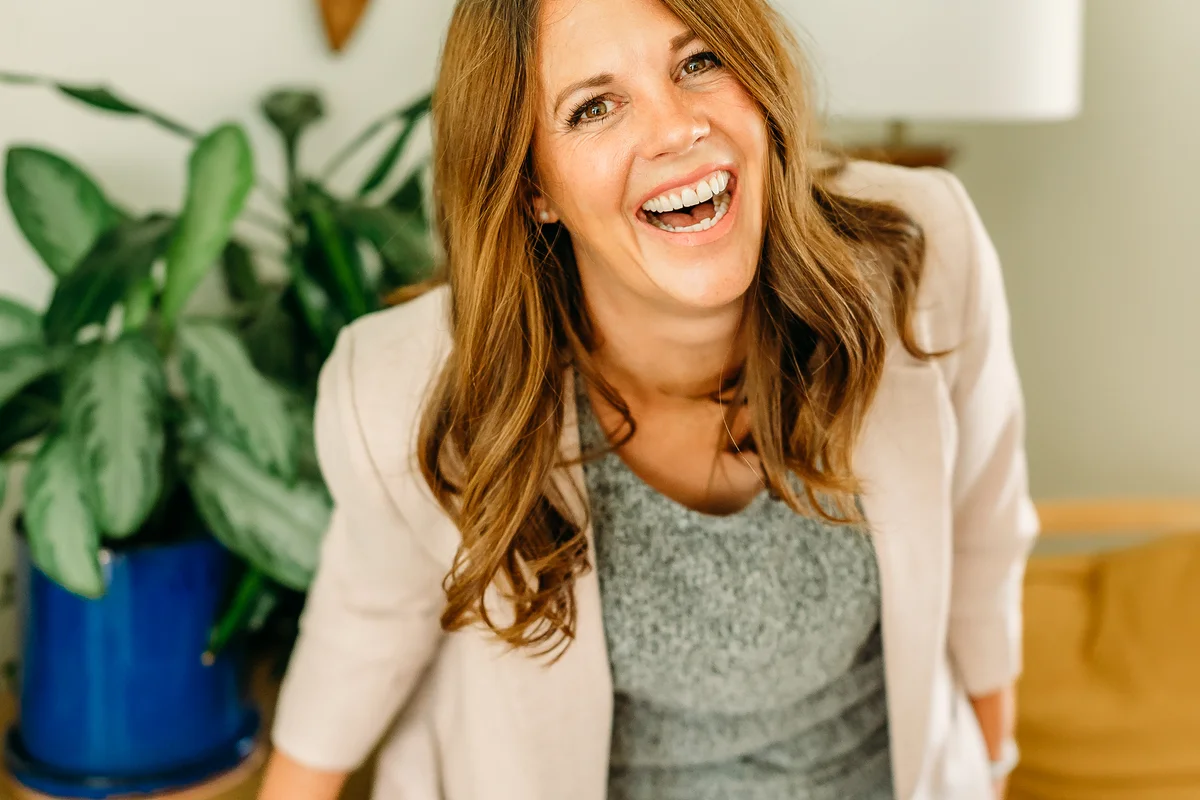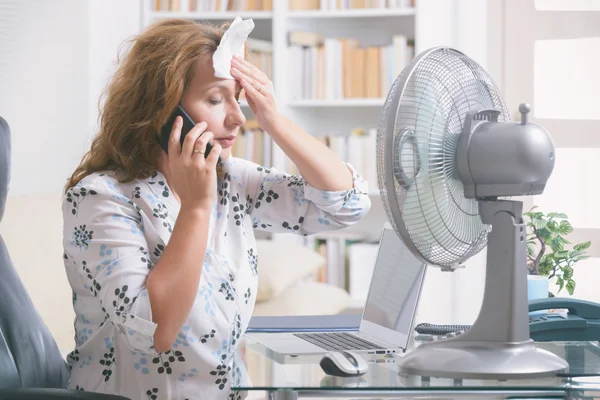As told to Nicole Audrey Spector
I was 36 years old when a light switched off inside me. I’d always been a motivated self-starter — someone who got up early in the morning to get a run in before starting the day I genuinely looked forward to. But suddenly I was no longer that person.
It was as though I became a hollowed out version of myself. I was plagued by insomnia, muscle aches, joint pain, itchiness and fatigue. My brain fog was so severe that if I were entering a number into a computer, I’d have to write the number down and check it a bazillion times. My memory was shot.
I also had zero sex drive, which was unusual for me, and it was affecting my marriage to the point that I thought I didn’t love my husband anymore and was considering a separation. And it wasn’t just the act of sex — my skin crawled at the thought of being touched at all.
Clearly something was going on. A friend of mine suggested it might be a hormonal issue, so I went to my OB-GYN, who ordered blood work.
Everything came back within normal range except for my vitamin D levels, which were low.
I started taking vitamin D supplements hoping they would make a difference — that they would help put me back into my body and end the feeling that I was a ghost of my true self.
But nothing changed, from what I could tell. My symptoms continued. For six years.
During that time, I suffered a prolapsed uterus and underwent a partial hysterectomy (an option that allowed me to keep my ovaries and avoid going through surgical menopause).
After that, my symptoms only got worse. Yet still I was told by my OB-GYN that everything was normal.
At times, the brain fog was so overwhelming that I wondered if I was experiencing early onset dementia. One weekend, I simply couldn’t muster the energy to get out of bed. I lay there in anguish, feeling like my troubles were all my fault, like I was crazy.
“This has got to be depression,” I thought.
I asked a few close friends what they recommended doing if they thought they were depressed.
“Who do I call?” I asked. “A therapist? A psychiatrist? I think I need antidepressant medication.”
One of my friends suggested that before I go down the mental health path, I consult with a functional medicine practitioner who might use a more holistic approach to my treatment.
“You have all the symptoms I had after my hysterectomy,” my friend said, adding that she’d undergone hormone therapy and it had worked wonders for her.
I was a bit skeptical. Hormone therapy? Really? To fix pain and itchiness and brain fog and sadness and sleeplessness? Seemed like a tall order, but I was beyond desperate.
I took her advice, and went to a functional medicine doctor and had blood work done. The functional medicine practitioner said that some of my hormone levels were actually quite low and that I could benefit tremendously from hormone therapy.
I was so relieved to finally be listened to and taken seriously — to have someone professional actually agree with me that something was seriously wrong — that I sobbed right then and there. Without hesitation, I elected to begin hormone therapy.
And for the first night in years, I slept the whole way through. I didn’t even know that was possible!
Within about four months, my life was radically improved. I began waking up with energy and purpose — just like I had when I was 35 and younger. My mind was clear and focused. The sadness had lifted, along with the fog that had clouded my brain for so long. All the pain in my joints and muscles vanished.

I went for a run for the first time since my symptoms became too much to bear and I ran three miles without stopping. I cried the whole time — beautiful tears of joy and relief. I was back.
Also back with a roar was my sex drive. I deeply desired my husband’s touch and looked forward to having sex with him. For all those years prior, I’d been relying on a glass of wine to vaguely put me in the mood. Just as I’d been relying on Ibuprofen for pain relief and melatonin to catch a few hours of broken sleep. I no longer needed any of it.
I was so inspired by how much better I felt with hormone therapy that I posted a video about my journey on TikTok. I thought little of it until a few days later when I learned that more than 9 million people across the world saw my story.
I’ve since connected with thousands of women (and quite a few husbands too), and have empathized with their stories of struggling with perimenopause and hormone imbalances.
So many women are dealing with the same horrible symptoms that I went through. They too have been told that nothing is wrong and that their hormone levels are “normal.” Many of them have come to believe that this is just what life is like for women as they get older — that you become a kind of zombie version of your former self.
That’s what I had started to believe too.
But that’s not true. Life doesn’t end with perimenopause (or any hormone imbalance) — just as I know it won’t end with menopause. Not every woman will need the kind of help that I need, but plenty of them will, and I’m here to say that there is hope. You deserve to feel good.
You can switch that light in yourself back on. And you can shine brighter than ever.
- The Pros and Cons of Hormone Therapy ›
- What's the Deal With HRT? ›
- Menopause and Panic Attacks: What's the Connection? ›
- What You Need to Know About Menopause ›
- JoAnn Pinkerton, M.D., Speaks With HealthyWomen About Hormone Therapy for Menopause ›
- Clinically Speaking: Do I Need Hormone Replacement Therapy? - HealthyWomen ›
- Perimenopause Can Be Terrible, but It Will Pass - HealthyWomen ›







